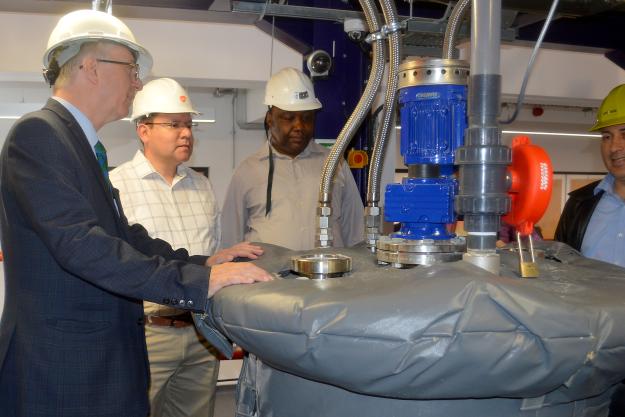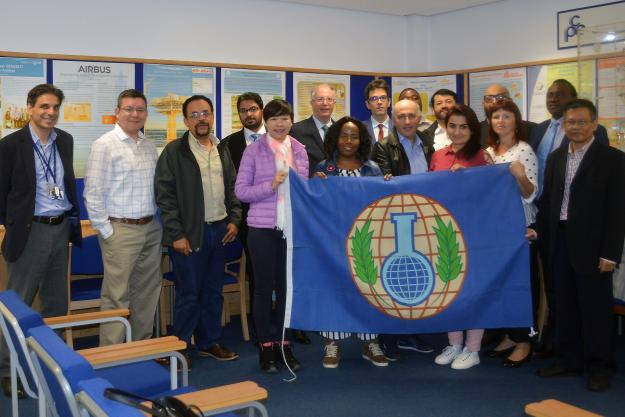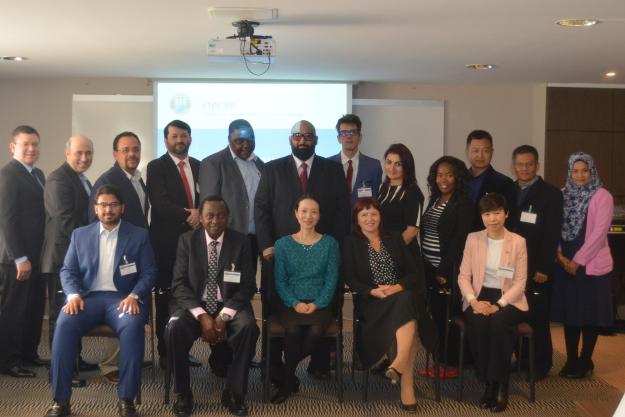
Participants listen to an explanation of a chemical process at the University of Surrey pilot plant
Head of the International Cooperation Branch at OPCW, Mrs Xiaohui Wu, emphasised the cultivation of leadership as a critical foundation in improved chemical management, and in meeting the field’s safety and security challenges, as well as address social and environmental concerns for sustainable industry growth. Mrs Wu expressed hope that, “the expertise gained during the programme will enable future leadership in promoting the peaceful uses of chemistry in [their] respective countries, regions and worldwide”.
The course, which entered its second year, was organised in collaboration between the Organisation for the Prohibition of Chemical Weapons (OPCW) and the University of Surrey. It explored new ways of working to increase efficiency, sustainability, safety and security in the appropriate management of chemicals.

Participants visit a chemical pilot plant at the University of Surrey
The programme included panel discussions on trends and challenges pertaining to the topics of the implementation of the Chemical Weapons Convention (CWC), international cooperation, emerging economic issues through integrated chemicals management, sustainable development in chemical educations, and the integration of chemicals management culture in laboratories.
The programme also included presentations from other international organisations and associations, including CEFIC, UNEP, and OECD, which shared their experiences on integrated chemicals management.
A key feature in the programme was a field visit to a chemical pilot plant situated at the University of Surrey in which participants saw the practical application of integrated chemicals management in a modern chemical industry setting.
The programme welcomed 16 participants from Belgium, Bosnia and Herzegovina, Botswana, Chile, China, Grenada, Malaysia, Mozambique, Myanmar, Peru, Qatar, Saudi Arabia, Slovakia, Tajikistan and Uganda, who contributed their managerial experiences from government agencies, chemical industries, academia and laboratories.

The programme welcomed 16 participants who contributed their managerial experiences from government agencies, chemical industries, academia and laboratories.
Background
As the implementing body for the Chemical Weapons Convention, the OPCW, with its 193 Member States, oversees the global endeavour to permanently eliminate chemical weapons. Since the Convention’s entry into force in 1997, it is the most successful disarmament treaty eliminating an entire class of weapons of mass destruction.
Over 96% of all chemical weapon stockpiles declared by possessor States have been destroyed under OPCW verification. For its extensive efforts in eliminating chemical weapons, the OPCW received the 2013 Nobel Peace Prize.
